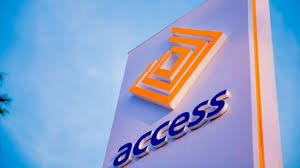Business
Onyeali-Ikpe Not Connected to Fraud Case, AGF Explains Discontinuation of Charges Against Fidelity CEO

The Office of the Attorney General of the Federation and Minister of Justice, Lateef Fagbemi, SAN, on Monday clarified its discontinuation of a fraud (criminal) charge against the Managing Director and Chief Executive Officer (MD/CEO) of Fidelity Bank Plc, Dr. Nneka Onyeali-Ikpe.
The clarification was disclosed in a statement issued by the Special Adviser to the President on Communication and Publicity, Office of the AGF & Minister of Justice, Kamarudeen Ogundele, on June 9, 2025.
The statement was issued in response to the reaction trailing a media report which accused the AGF and the Nigerian government of dropping Dr. Nneka C. Onyeali-Ikpe’s name as a co-defendant in an ongoing criminal case involving an alleged multi-billion-naira fraud.
The case was said to be initially initiated by the Attorney General of the Federation before the Federal High Court, Lagos, against lawyer Victor Ukutt, Whoba Ugwunna Ogo (reportedly at large), Fidelity Bank Plc, and Onyeali-Ikpe, over the alleged unlawful conversion of funds belonging to Woobs Resources Limited to the tune of N19 billion.
The report claimed that in an amended 10-count charge filed on May 5, 2025, the AGF subsequently dropped the name of Dr. Onyeali-Ikpe and replaced it with Safiya Whoba.
AGF Clarifies
Providing clarification on the development, the AGF’s spokesperson stated, “The Attorney General’s decision to discontinue the criminal charge against Dr. Nneka Onyeali-Ikpe, MD/CEO of Fidelity Bank Plc, is a testament to the office’s commitment to upholding justice and fairness.”
He explained that, as the chief law officer of the federation, the AGF has the constitutional power to discontinue prosecution against a defendant where it is deemed necessary to prevent a miscarriage of justice.
According to him, “This decision followed a careful review of the case, which did not connect Dr. Onyeali-Ikpe to the charge, as she was neither the account officer nor the Managing Director of Fidelity Bank when the account used in the alleged scheme of fraud was opened.”
The official stressed that the Attorney General’s decision is guided by the principles of justice, fairness, and the rule of law, and expressed confidence that this decision is in the best interest of justice and the public
The statement added, however, that the decision to remove the CEO from the case does not exculpate Fidelity Bank from the allegations contained in the charge, which is still pending before the court, but rather demonstrates the Attorney General’s duty to ensure that justice is served.
“We urge the public to allow the legal process to run its course and to refrain from speculation or jumping to conclusions,” the statement partly reads.
Source: Nairametrics
Business
Access Bank Launches “DettyFusion” Platform for Seamless Detty December Experience

Access Bank Plc, Nigeria’s largest retail bank, is set to unveil DettyFusion, an innovative all-in-one digital platform designed to help Nigerians at home and in the diaspora seamlessly discover, plan, and enjoy entertainment events during the upcoming Christmas and New Year festive season.
Billed as the first-of-its-kind entertainment aggregator in the country, DettyFusion will serve as a centralized hub where users can explore event calendars, purchase tickets, access exclusive discounts, participate in curated festive experiences, and make safe, seamless payments throughout the holiday period.
Speaking on the forthcoming launch, Access Bank’s Head of Mobility, Ishmael Nwokocha, said the platform was inspired by the bank’s commitment to enhancing customer experience during the highly anticipated Detty December season.
“Every December, Nigerians look forward to moments that bring joy, connection, and unforgettable experiences. The launch of DettyFusion will create a single gateway that makes it easier, safer, and more convenient for customers to enjoy the thrills of Detty December,” Nwokocha stated.
He added that the platform reflects Access Bank’s drive to deliver innovative lifestyle solutions that extend beyond traditional banking services. “DettyFusion brings together key features that meet the needs of today’s digitally active and experience-driven audience,” he said.
With this initiative, Access Bank continues to reinforce its position as a leading lifestyle enabler, supporting Nigeria’s creative sector while empowering customers to enjoy top-tier entertainment during the festive season.
With DettyFusion, Detty December just got smarter, more convenient, and even more rewarding.
Business
How Access Bank is Supporting Women Driving Africa’s Growth Story

Across Africa, women are fast becoming the heartbeat of economic transformation. From bustling open-air markets to high-tech boardrooms, women-led enterprises are redefining what is possible for the continent’s future.
Whether as market traders expanding their reach through digital platforms, tech founders scaling innovations across borders, or artisans turning local crafts into global brands, women’s contributions are now central to Africa’s economic resurgence.
Even as they break new ground, many still face formidable barriers. Access to finance, mentorship, business education, and supportive networks remains limited. Structural issues such as weak property rights, gender bias, and inadequate legal protections often hinder women from securing loans or expanding their businesses.
Consequently, many women-owned ventures remain small, informal, and vulnerable to economic shocks.
Recognising both the promise and the obstacles, Access Bank has positioned itself at the forefront of empowering women across the continent. Recently named Africa’s Best Financier for Female Entrepreneurs by the EMEA Finance Awards, the Bank has earned global recognition for its commitment to inclusion, innovation, and sustainable impact.
At the centre of this effort is the W Initiative, one of Africa’s most comprehensive women-focused banking programmes. Unlike conventional banking, it combines finance with mentorship, training, and community support, acknowledging that true empowerment requires more than access to capital. The initiative meets women wherever they are on their entrepreneurial journey, from start-ups to growing enterprises and corporate leadership.
The W Power Loan offers affordable credit with flexible terms, enabling women to invest in expansion, inventory, or technology. The W Academy provides leadership and business training on financial literacy, marketing, and regulatory compliance, while the W Community connects women to peers, mentors, and role models across industries.
Importantly, these offerings extend beyond urban centres. From microloans sustaining traders in rural markets to leadership programmes developing female executives in multinational firms, Access Bank’s approach is deliberately inclusive. By partnering NGOs, business associations, and government agencies, it reaches women in underserved communities, ensuring participation in Africa’s economic rise.
The results are evident. Thousands of women have accessed credit, training, and networks through the Bank’s initiatives, enabling them to launch and scale businesses, create jobs, and uplift their communities. The ripple effects are far-reaching: increased household income, improved family wellbeing, and greater economic resilience. Women who once faced daunting barriers now serve as role models and change-makers, inspiring others to follow their path.
Studies show that when women thrive, societies prosper. The World Bank and African Development Bank note that empowering women fuels GDP growth, improves health outcomes, and enhances social stability. By directly addressing structural gaps in access to finance and information, Access Bank helps to unlock this transformative potential.
Apart from supporting entrepreneurs, Access Bank promotes gender inclusion within its own organisation. Its leadership pipeline identifies and advances talented women, while mentorship and wellness programmes help female professionals thrive. The Bank also uses public platforms, from conferences to policy dialogues, to share success stories and advocate for gender diversity across sectors.
The EMEA Finance recognition thus goes beyond trophies and titles; it affirms that profitability and purpose can coexist. For Access Bank, supporting women’s advancement is smart economics. By embedding inclusion into its DNA, the Bank is shaping a financial ecosystem that views women as equal partners in progress.
Access Bank’s influence also extends into advocacy. Through forums, roundtables, and research collaborations, the Bank engages policymakers, civil society, and business leaders to identify and dismantle barriers facing women entrepreneurs. Its campaigns amplify women’s voices, spotlighting their achievements and driving conversations around inclusive growth.
Business
Fidelity Bank Spreads Kindness to Makoko Community, Donates Boats, Food Items, Others

In another demonstration of its commitment to corporate social responsibility, leading financial institution, Fidelity Bank Plc, has extended support to residents of the Makoko waterfront community in Lagos with the donation of boats, educational materials, food items and other essential relief items.
The donation was championed by the Achievers Inductees Class of 2025 under the Fidelity Helping Hands Programme (FHHP), the bank’s staff-led CSR initiative where members of staff identify areas of critical interventions in their communities, raise funds and receive matching support from the bank’s management to execute the projects.
Speaking on the donation, Divisional Head, Brand and Communications, Fidelity Bank Plc, Dr. Meksley Nwagboh, reaffirmed the bank’s dedication to supporting communities and fostering sustainable development.
“At Fidelity Bank, we believe that when communities thrive, businesses prosper. Our commitment goes beyond banking, it is about improving lives, supporting education, and creating opportunities for growth. This donation reflects our dedication to nurturing the next generation and contributing to a better, more sustainable future,” He stated.
Expressing appreciation on behalf of the community, the traditional leader of Makoko, Baale Shemede Emmanuel Ajakaekun, commended Fidelity Bank for its compassionate donation.
“We are grateful that Fidelity Bank came down here to support us. May their work continue to flourish, and may God lift them higher. We hope they will not forget us but come back again to support our people,” he said.
Similarly, the Proprietor, Part of Solution Orphanage, Nursery and Primary School, Shemede Taiwo, described the donation as life-changing for the children and residents.
“Many children here struggle to attend school because boats are expensive to build or hire. Fidelity Bank’s donation will make a huge difference in ensuring our children get to school safely and in ensuring the improved welfare of the residents of this community. We truly appreciate this gesture,” Shemede Taiwo said.
Through the Fidelity Helping Hands Programme (FHHP), the bank continues to empower communities across Nigeria by addressing key social issues in education, health, and welfare. The Makoko outreach comes off the back of a similar FHHP outreach to Old People’s Home in Yaba, Lagos, reaffirming Fidelity Bank’s commitment to the sustainable development that begins with genuine care for people and their environment.
Ranked among the best banks in Nigeria, Fidelity Bank Plc is a full-fledged Commercial Deposit Money Bank serving over 9.1 million customers through digital banking channels, its 255 business offices in Nigeria and United Kingdom subsidiary, FidBank UK Limited.
The Bank is a recipient of multiple local and international Awards, including the 2024 Excellence in Digital Transformation & MSME Banking Award by BusinessDay Banks and Financial Institutions (BAFI) Awards; the 2024 Most Innovative Mobile Banking Application award for its Fidelity Mobile App by Global Business Outlook, and the 2024 Most Innovative Investment Banking Service Provider award by Global Brands Magazine. Additionally, the Bank was recognized as the Best Bank for SMEs in Nigeria by the Euromoney Awards for Excellence and as the Export Financing Bank of the Year by the BusinessDay Banks and Financial Institutions (BAFI) Awards.






